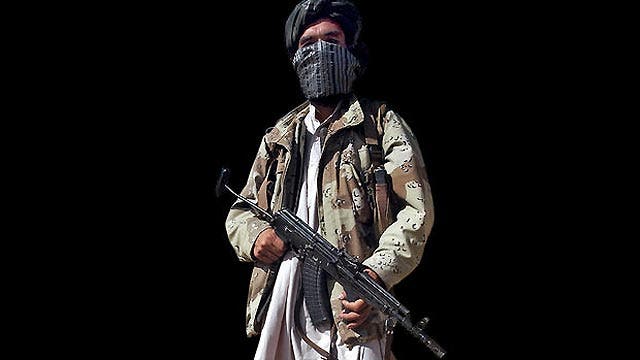This is a rush transcript from "Special Report," April 2, 2015. This copy may not be in its final form and may be updated.
(BEGIN VIDEO CLIP)
JOSEPH NKAISSERY, KENYAN INTERIOR MINISTER: The four terrorists are killed. This is a very sad day for Kenya. We, as I speak, it's unfortunate, that the terrorists were able to kill young, good citizens. And, as I speak to you, it is sad that we lost 147 lives.
(END VIDEO CLIP)
BRET BAIER, ANCHOR: 147 people killed today, and as Kenya university campus, most of them Christians, and obviously, right before Easter. Islamic gunmen said they were with Al-Shabaab. This comes as the United Nations comes out with a new report obtained by the Associated Press. In it, it says this, quote, "The number of foreign terrorist fighters worldwide increased by 71 percent between mid-2014 and March 2015...The panel said the thousands of foreign fighters who traveled to Syria and Iraq are living and working in 'a veritable international finishing school for extremists' as was the case in Afghanistan in the 1990s." We're back with the panel. Jonah?
JONAH GOLDBERG, SENIOR EDITOR, NATIONAL REVIEW: Yes, Afghanistan was a lot harder to get to and a lot easier to contain than the middle of Middle East. Look, it's a mess. And the fundamental assumption of a lot of people's worldview -- particularly liberal's worldview -- is that man is homo-economicus, that he is just driven by his economic needs. Root causes will explain all of this.
And I think there's another alternative theory, which is man is homo-religioso, that is, religious by nature. And the homo-religioso argument is winning these days, the sectarian battles between Shia and Sunni, Muslim and Christian, that's how millions of people are defining their lives. And the rhetoric coming out of America, from Republicans and Democrats, has yet to catch up with that, and neither has the strategy.
BAIER: I mean, everything we have been told about this attack in Kenya, the gunman ran in and said who were the Christians, who are the Muslims, and killed all the Christians.
LIASSON: I totally agree with Jonah. The answer to this -- who knows what it is. The answer to the homo-economics is relatively easy. But this? There is bits of religious warfare between Israelis and Palestinians now, too. The indiscriminate coming in and just killing people because they are not your religion or they are the other, and you see that with the Shiites and Sunnis.
I don't know what the answer is. We can't occupy these countries and stop this. But you do see finally, kind of Sunni Arab nations trying to take some kind of control of their own problem.
BAIER: To that end --
LIASSON: Yeah.
BAIER: The Sunni coalition led by Saudi Arabia and Egypt still active inside Yemen, but yet today, the Houthi rebels overtook the presidential palace in Aden. And it seems like the level of violence there in Yemen is increasing.
CHARLES KRAUTHAMMER, SYNDICATED COLUMNIST: Aden is a key strategic port. In the days of the British Empire it was probably the most important naval base of the entire British Navy protecting East Africa, the Indian Ocean, all the way to the Indian subcontinent. If we lose it to Iran -- the Saudis are terrified that if it ends up in the hands of Iranian proxies it will be a pincer around its country and also it will threaten all the shipping in the area.
And, the idea that this is just a religious war of which we have no, you know, there is nothing that we can do -- yes, but it would help if we recognized what's going on. It turned out as Obama -- Obama had said in 2012 the tide of war is receding. It doesn't look like it. He also continues to say none of this is about religion. Well, the terrorist this morning identified Christian students and shot them and left the Muslim students alone. That looked like a religious war to me. But the last thing is we have had a chance to help the few, the moderates in the region in Syria, the Kurds in Iraq, to support the Egyptian president who spoke about reforming Islam. But we haven't really lifted a finger there. Instead, we are making deals with Iran which is the leader of Shiite jihadism.
BAIER: Quickly, Jonah, the Saudi action, the Arab coalition action in Yemen, some people are saying i helping Al Qaeda there.
GOLDBERG: Just from the destabilization of the region, yes. And these talks with Iran are helping the Shiite front by giving Iran time to it do the shenanigans and the mischief that it's doing.
KRAUTHAMMER: That is it for the panel, to end on a happy note here. Stay tuned for some Hillary headlines you may have missed.
Content and Programming Copyright 2015 Fox News Network, LLC. ALL RIGHTS RESERVED. Copyright 2015 CQ-Roll Call, Inc. All materials herein are protected by United States copyright law and may not be reproduced, distributed, transmitted, displayed, published or broadcast without the prior written permission of CQ-Roll Call. You may not alter or remove any trademark, copyright or other notice from copies of the content.






















